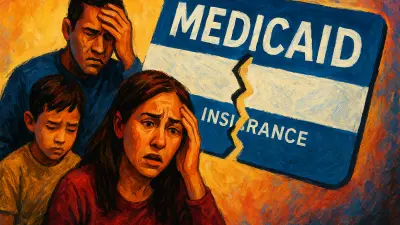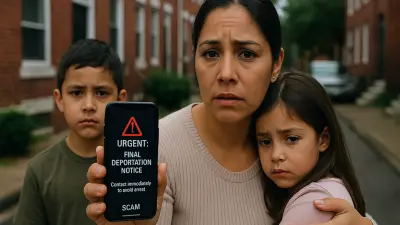A landmark federal reconciliation bill, dubbed the “One Big Beautiful Bill Act,” is set to strip Medicaid coverage from as many as 175,000 Marylanders, or more than 10 percent of the state’s current enrollees, under $2.7 billion in federal funding cuts.

Nonprofit media outlet Maryland Matters arrived at the numbers after analyzing who currently receives Medicaid in the state and might be affected by new guidelines.
Affected individuals include immigrant communities such as refugees, asylum seekers, and lawful permanent residents, as well as some adults.
While pregnant women, children, the elderly, and people with disabilities are exempt from the new cuts, the bill introduces new work requirements of 80 hours per month for some adults and mandates semiannual renewal checks.
State and local officials warn that the changes could cripple safety-net services and destabilize rural health systems, according to The Washington Post. This is especially true in counties like Allegany, where SNAP and Medicaid enrollment rates top 20% and 33%, respectively.
Maryland’s hospitals and clinics are poised to face sharp funding shortfalls, prompting calls for fiscal strategies to offset the impact.
Maryland Gov. Wes Moore and U.S. Rep. April McClain Delaney have led the charge in condemning the legislation, warning it undermines vulnerable families and threatens care for rural residents.
Proponents of the bill, including Rep. Andy Harris, argue that the design excludes only undocumented individuals and able-bodied adults without employment and preserves essential protections for the most at-risk groups.
The legislation also includes a $50 billion rural hospital fund for the entire country, doubling the previous commitment, to mitigate the financial impact.
The bill aims to cut more than $1 trillion from federal spending on Medicaid, SNAP, and ACA subsidies. The Congressional Budget Office estimates a net rise of 11.8 million uninsured individuals nationally over the next decade, with nearly 200,000 of them potentially being Marylanders.
The coming year will place intense pressure on state legislators as Maryland heads into its next budget session and a pivotal midterm election cycle. With federal funding set to decline steeply by mid-2026, lawmakers will be forced to make difficult fiscal decisions, from adjusting taxes to redirecting state funds into health coverage.
Why it matters
Public health: Rising uninsured rates tend to correlate with increased emergency hospitalizations and higher uncompensated-care costs, particularly among rural and low-income populations.
Political stakes: As the cuts take effect ahead of the 2026 elections, both parties are scrambling to frame the fallout as the other party’s issue. Democrats point to a moral failure, while Republicans emphasize cost containment and fairness.al failure, while Republicans emphasize cost containment and fairness.







